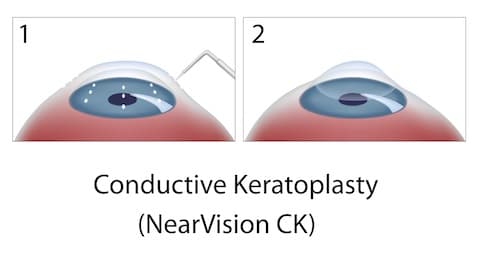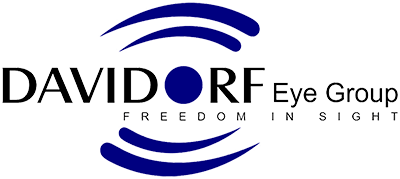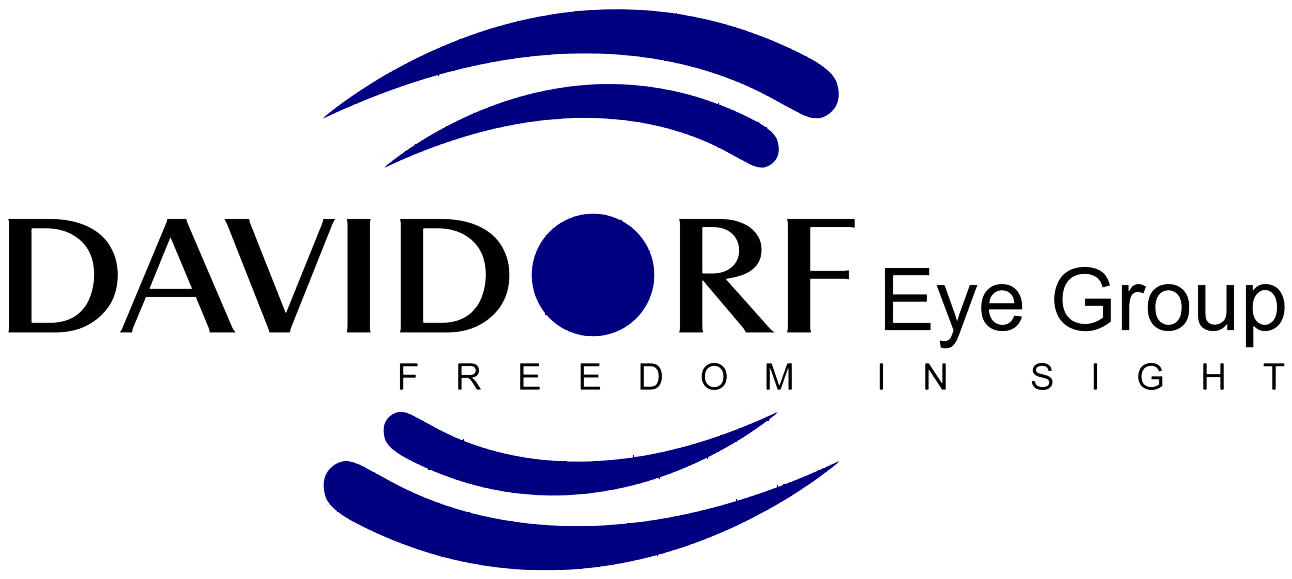CK is a non-laser treatment most commonly used for baby-boomers who are tired of their reading glasses. A special probe introduces an electrical current to the peripheral cornea, shrinking the corneal fibers. The electrical current acts like a purse-string, causing the central cornea to steepen, thus improving the near vision in the treated eye. The procedure takes less than five minutes and is essentially painless. The major advantage of CK (Conductive Keratoplasty) is its relative safety.

Our experience with CK began during the FDA clinical trials, which began in 1998. While CK gained FDA approval in 2002 for the treatment of farsightedness, we found that the best candidates are patients over the age of 45 with excellent distance vision but with difficulties seeing near items such as their cell-phone, wrist-watch, and price tags. In 2004, CK became the first FDA approved the procedure for this indication, known as “presbyopia.
Many Conductive Keratoplasty patients only need one eye, usually, their non-dominant eye, treated. The recovery of near vision is almost immediate, although patients usually notice a decrease in the distance vision of the treated eye which improves with time.
Most CK patients may return to work within one to three days following their correction procedure. Because the condition of presbyopia progresses as we age (ie: people need stronger reading glasses at age 65 than at age 45), and because the corneal steepening effect of CK (conductive keratoplasty) can diminish with time, extra CK treatment may be needed within three to five years of the initial procedure. Because of the safety and benefits of CK, the FAA (Federal Aviation Administration) approved the use of CK for pilots.
With improvements in the safety and efficacy of all-laser LASIK, many patients who may have considered having CK performed, choose instead to undergo LASIK to improve their reading vision. Additionally, improvements in lens implant technology have provided patients desiring to see without reading glasses further surgical options.
As a newer potential indication CK, since 2014 we have been studying the effect of CK in attempting to improve vision for patients with keratoconus. As part of an investigational clinical trial, CK is performed in combination with corneal collagen crosslinking. Please note, this combined procedure is not FDA approved and is performed only as part of a study protocol
Call us today at 818-883-0112 or fill out our online form to schedule a Conductive Keratoplasty consultation. If you would like to read without glasses but are not a candidate for Conductive Keratoplasty (CK), you may wish to consider the various laser vision correction or lens implant procedures.



